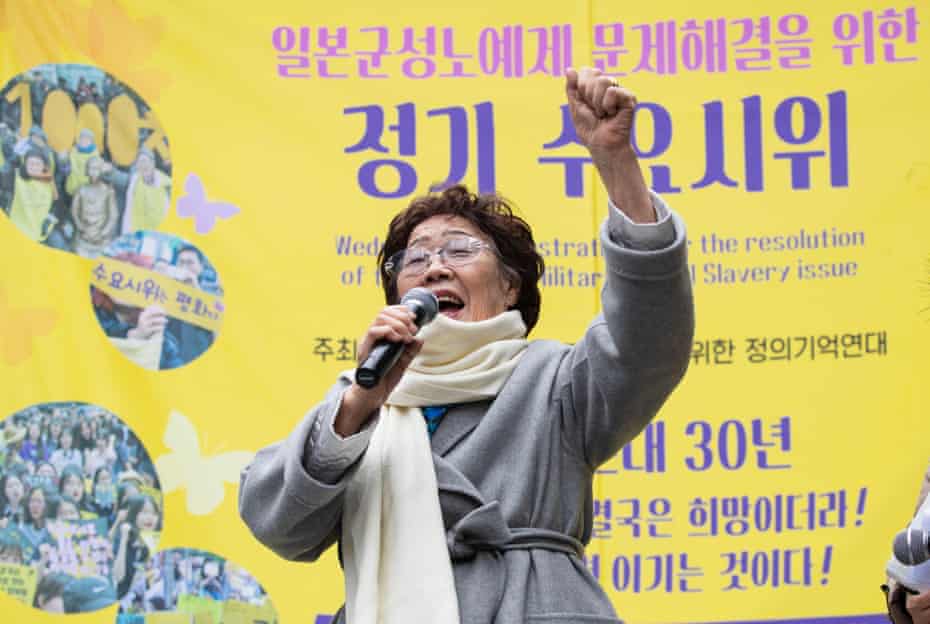
Lee Yong-soo speaks during a regular Wednesday rally to call for the Japanese government to apologize for its wartime sexual slavery and compensate victims Photograph: Newscom/Alamy Stock Photo
It began with a call by a South Korean former “comfort woman” to end protests outside Japan’s embassy in Seoul – a rare attempt at reconciliation that has quickly spiralled into the biggest crisis the campaign for justice for survivors of wartime sexual slavery has faced in its three-decade history.
Lee Yong-soo, a 92-year-old veteran campaigner, told reporters last month that she would no longer attend weekly rallies outside the embassy, claiming that they had only engendered hatred between young South Koreans and their Japanese counterparts.
“The deep animosity between the two nations over their history can only be resolved through education and more exchanges with younger Japanese people,” she said.
But Lee was to land another bombshell, claiming that a group formed to support her and other survivors had exploited public sympathy for their ordeal to secure donations, but had spent little of the cash on their welfare.
Her claims sparked an emotional public debate on the comfort women, a euphemism for tens of thousands of girls and women – mostly Koreans, but also Chinese, south-east Asians and a small number of Japanese and Europeans – who were forced to work in frontline brothels run by the Japanese military before and during the second world war.
Prosecutors are now investigating allegations that the Korean Council for Justice and Remembrance for the Issues of Military Sexual Slavery by Japan failed to help the victims and used the funds instead for private gain. The group said it “never loosely used money” but apologised for “accounting flaws” for which it has requested an independent audit.
The investigation is proving uncomfortable for South Korea’s president, Moon Jae-in, after claims emerged that the council’s former head Yoon Mee-hyang, who represents Moon’s party, embezzled some of the funds to buy property and to pay for her daughter’s education in the US.
Yoon, who left the council after winning a seat in April’s national assembly elections, has denied the allegations but apologised for “banking errors”.
Yuji Hosaka, a Japanese-born South Korean professor of Japanese studies at Sejong University in Seoul, said the scandal risked overshadowing the group’s advocacy for former sex slaves since the first survivor went public with her story in 1991. “The movement’s purpose should be respected,” he said.
‘Inflicting great harm’
Lee’s claims are taking a toll on a campaign once that united South Koreans from across the political spectrum behind a shared contempt for Japan, whose 1910-1945 rule of the Korean peninsula continues to sour bilateral ties.
Last weekend, Sohn Young-mi, the head of a shelter for some of the surviving women, was found dead at her home. The cause of death has not been established but police believe it was a suicide, according to South Korean media. Sohn had not been accused of financial misconduct.
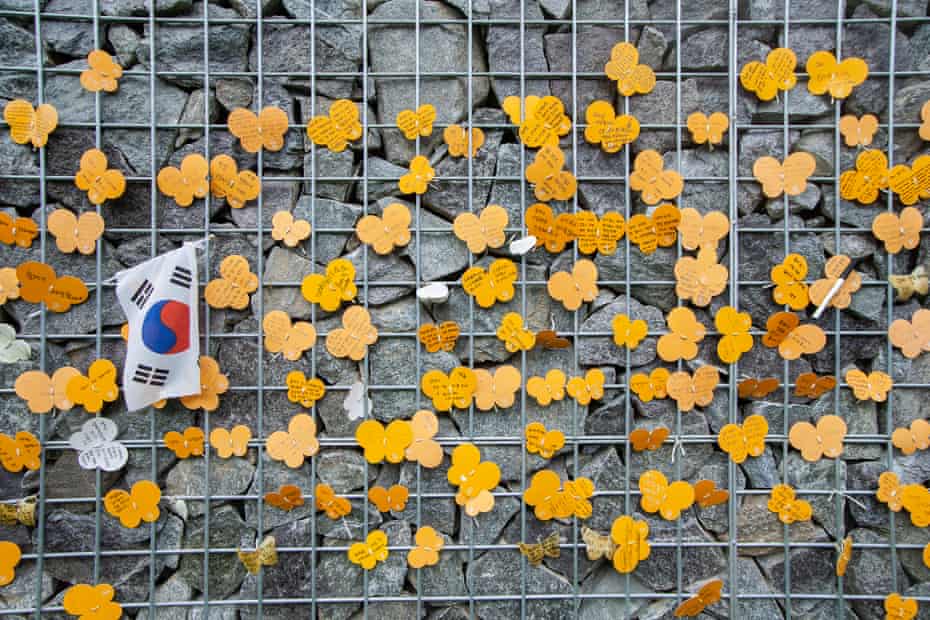
While most South Koreans support the women’s demands for an official apology and compensation from Japan, a recent poll by Realmeter found that 70% believed Yoon should resign her national assembly seat.
The conservative newspaper Chosun Ilbo said the council had “hitch-hiked on incendiary anti-Japanese sentiment, driven by political motives,” adding that it had made it “even harder” to resolve the comfort women issue.The centre-left Hankyoreh newspaper said Yoon and the council “need to be transparent about the allegations … and if any wrongdoing comes to light, they must take responsibility for it,” but warned that the scandal was being exploited by Japanese right-wingers who deny the comfort women were coerced.
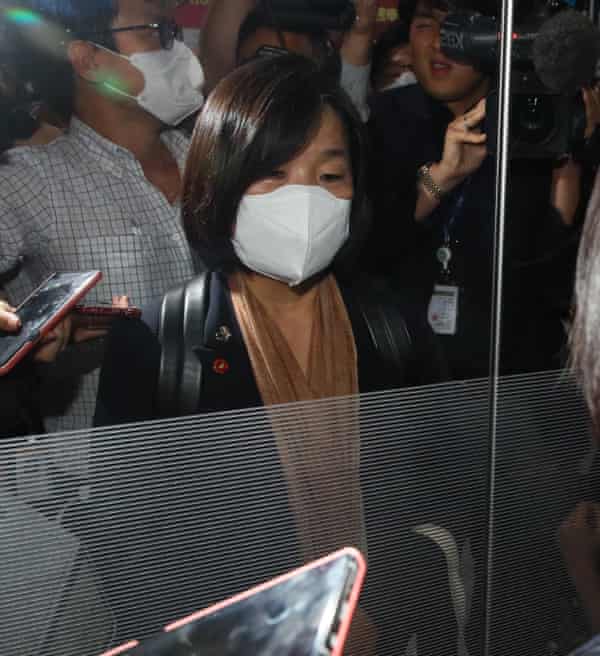
This week, Moon broke his silence, telling colleagues that the scandal should not be allowed to undermine the comfort women’s cause. “The victims’ wounds have not been completely healed, as a true apology and reconciliation are still out of reach,” he said, according to the Yonhap news agency.
Lee’s allegations, he said, were an opportunity to scrutinise how support groups had operated. But he added: “It is not right to attempt to deny the comfort women campaign and damage its cause. That would destroy the dignity and honour of the victims.”
The council has said it will continue to protest outside the Japanese embassy every Wednesday until the comfort women controversy is “resolved.” The rallies have been held more than 1,400 times since January 1992, with survivors joining student activists to call for an official apology and compensation from the Japanese government.
That is unlikely to happen. Successive Japanese administrations have refused to provide official compensation, insisting that all compensation claims were settled under a 1965 bilateral peace treaty.
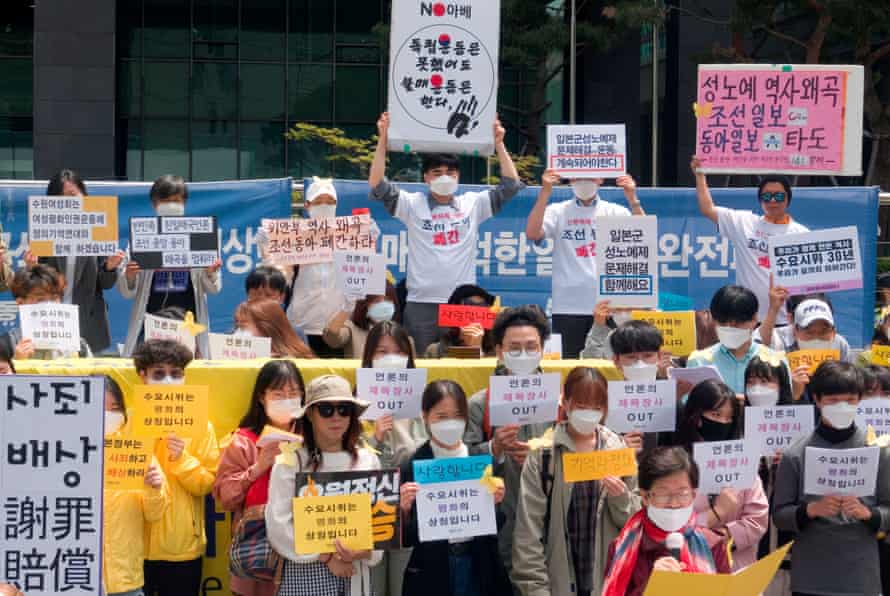
The prime minister, Shinzo Abe, and other conservative politicians have played down the Japanese military’s role in procuring the women, while right-wing activists insist that the women were not coerced and question the number of victims cited by many historians.
The countries appeared to have settled their differences in late 2015, when Japan agreed to provide 1 billion yen [USD 9.3 million] in “humanitarian” funds to a South Korean foundation set up to support the women. In return, Seoul agreed not to raise the issue in international forums, adding that it would try to meet Japan’s demand to secure the removal of a comfort women statue in front of the embassy in Seoul.
But the diplomatic truce, which both governments described as “irreversible”, lies in tatters after Moon dissolved the foundation, saying that the deal – negotiated under his conservative predecessor Park Geun-hye – had not taken into account the feelings of surviving victims and the South Korean public.
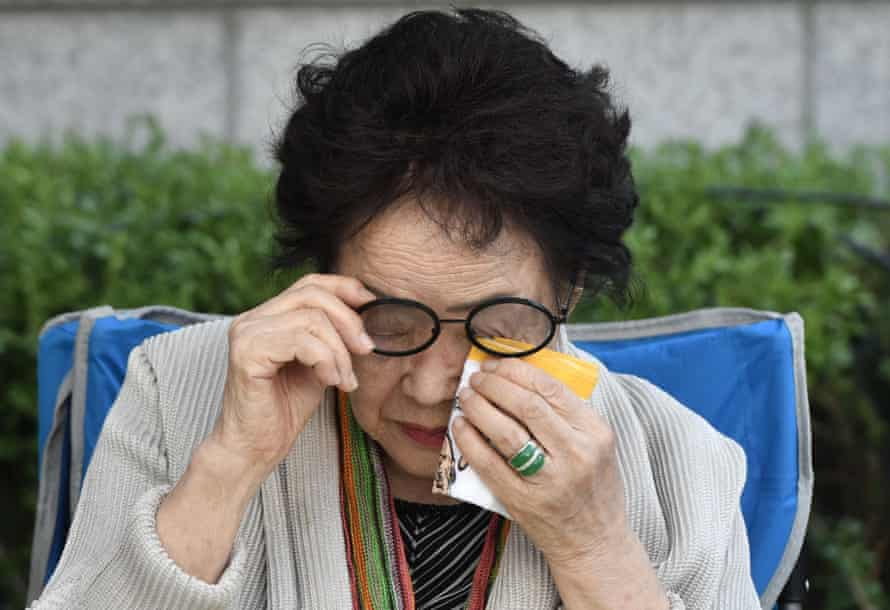
The scandal is a reminder that for Lee and other victims, their quest for justice is also a battle against time. An estimated 46 former sex slaves were alive at the time of the doomed agreement with Japan; just five years later, as Lee went public with her explosive claims about a movement that was once politically untouchable, she was one of only 17 survivors.
Nemo Kim contributed reporting from Seoul
The Guardian
